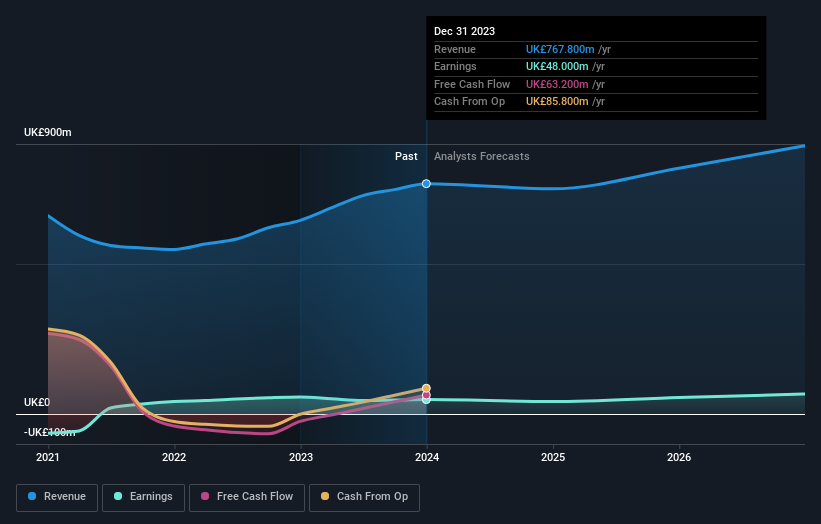International Personal Finance’s (LON:IPF) investors will be pleased with their 1.8% return over the last five years

For many, the main point of investing is to generate higher returns than the overall market. But every investor is virtually certain to have both over-performing and under-performing stocks. So we wouldn’t blame long term International Personal Finance plc (LON:IPF) shareholders for doubting their decision to hold, with the stock down 25% over a half decade. In contrast, the stock price has popped 9.7% in the last thirty days.
Since shareholders are down over the longer term, lets look at the underlying fundamentals over the that time and see if they’ve been consistent with returns.
Check out our latest analysis for International Personal Finance
There is no denying that markets are sometimes efficient, but prices do not always reflect underlying business performance. One flawed but reasonable way to assess how sentiment around a company has changed is to compare the earnings per share (EPS) with the share price.
International Personal Finance became profitable within the last five years. That would generally be considered a positive, so we are surprised to see the share price is down. Other metrics may better explain the share price move.
The most recent dividend was actually lower than it was in the past, so that may have sent the share price lower. The revenue decline of about 6.7% per year might also encourage sellers.
The image below shows how earnings and revenue have tracked over time (if you click on the image you can see greater detail).
We know that International Personal Finance has improved its bottom line over the last three years, but what does the future have in store? It might be well worthwhile taking a look at our free report on how its financial position has changed over time.
What About Dividends?
It is important to consider the total shareholder return, as well as the share price return, for any given stock. Whereas the share price return only reflects the change in the share price, the TSR includes the value of dividends (assuming they were reinvested) and the benefit of any discounted capital raising or spin-off. It’s fair to say that the TSR gives a more complete picture for stocks that pay a dividend. In the case of International Personal Finance, it has a TSR of 1.8% for the last 5 years. That exceeds its share price return that we previously mentioned. And there’s no prize for guessing that the dividend payments largely explain the divergence!
A Different Perspective
International Personal Finance’s TSR for the year was broadly in line with the market average, at 11%. Most would be happy with a gain, and it helps that the year’s return is actually better than the average return over five years, which was 0.4%. Even if the share price growth slows down from here, there’s a good chance that this is business worth watching in the long term. It’s always interesting to track share price performance over the longer term. But to understand International Personal Finance better, we need to consider many other factors. Take risks, for example – International Personal Finance has 2 warning signs (and 1 which doesn’t sit too well with us) we think you should know about.
If you would prefer to check out another company — one with potentially superior financials — then do not miss this free list of companies that have proven they can grow earnings.
Please note, the market returns quoted in this article reflect the market weighted average returns of stocks that currently trade on British exchanges.
Have feedback on this article? Concerned about the content? Get in touch with us directly. Alternatively, email editorial-team (at) simplywallst.com.
This article by Simply Wall St is general in nature. We provide commentary based on historical data and analyst forecasts only using an unbiased methodology and our articles are not intended to be financial advice. It does not constitute a recommendation to buy or sell any stock, and does not take account of your objectives, or your financial situation. We aim to bring you long-term focused analysis driven by fundamental data. Note that our analysis may not factor in the latest price-sensitive company announcements or qualitative material. Simply Wall St has no position in any stocks mentioned.
Source link






